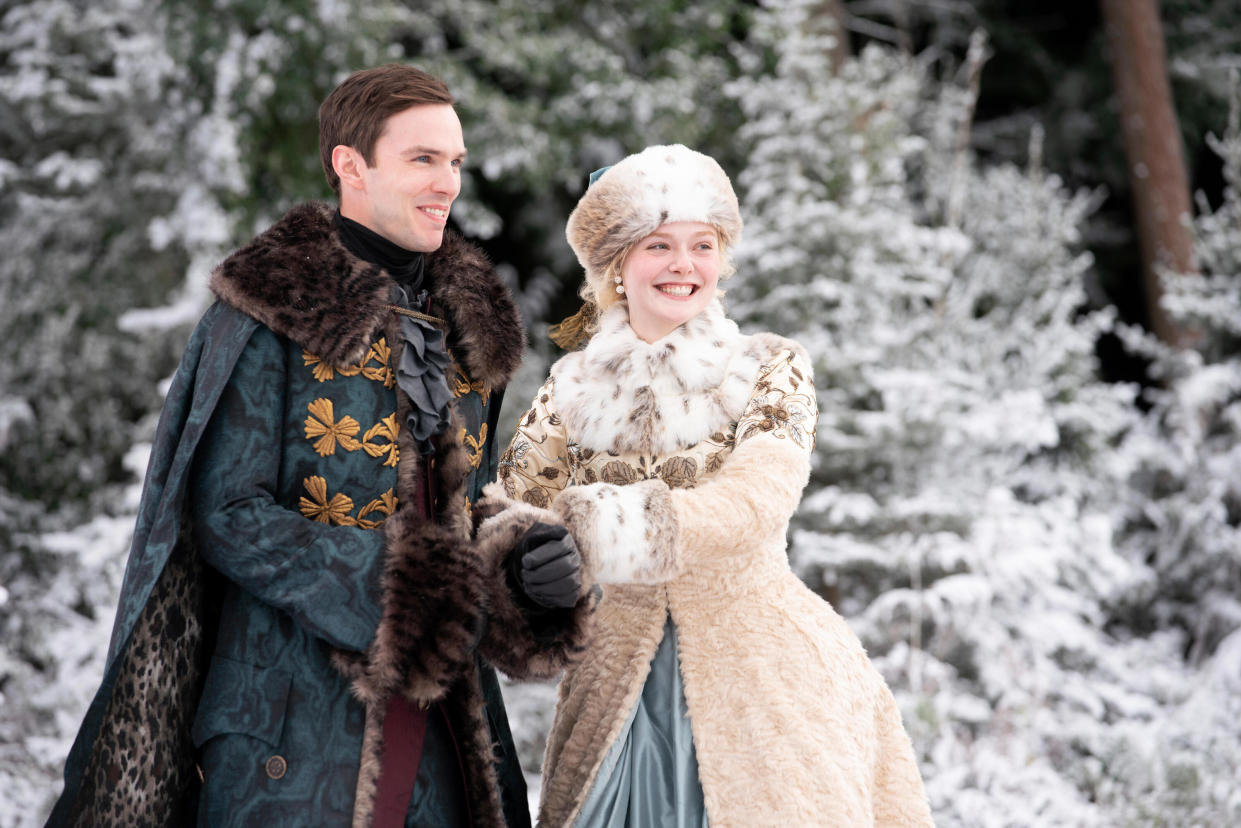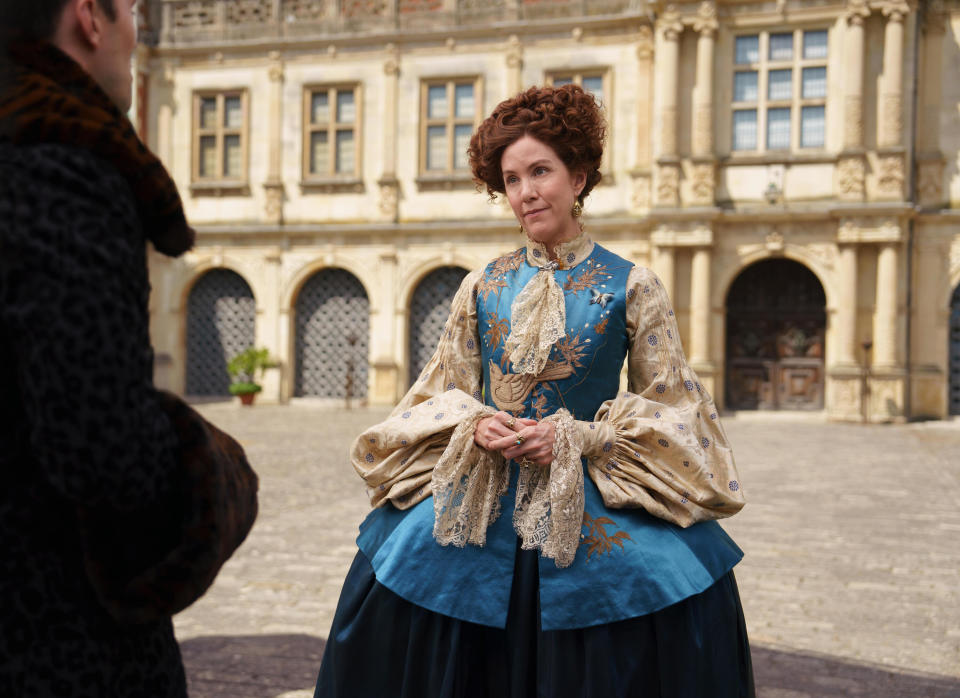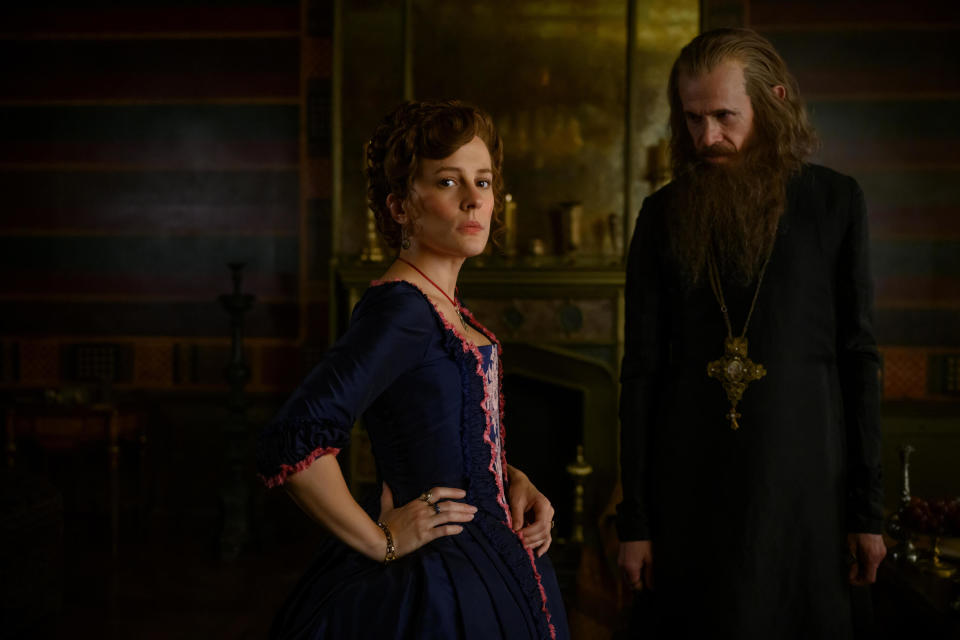‘The Great’ Pulled Off Its Own ‘Succession’-Like Shocker to Perfection

[Editor’s Note: The following contains spoilers for “The Great” Season 3, including the ending.]
Peter III did not live to be 295 years old, so he was going to have die at some point. The history books are murky on what actually led to the Russian emperor’s death in 1762. The version in “The Great” Season 3 is slightly more definitive, but like so much on that Hulu show, it’s more about perception than anything else. In a spring when surprise exits for central characters has led to many discussions about what shows do about what comes after, “The Great” has become a fascinating addition to the collection. How it bid adieu and what came next in the episodes that followed all speak to the strengths of a show that shouldn’t be flying under the radar.
More from IndieWire
How Joel Kim Booster 'Got Away with Murder' Bringing 'Fire Island' to Life
'Futurama' Is Back (Again): Revival Sets Premiere Date and Shares a Teaser -- Watch
After Peter (Nicholas Hoult) falls through the ice a little over halfway through Season 3 and past the point where it’s confirmed that the grieving Catherine (Elle Fanning) and Grigor (Gwilym Lee) didn’t just hallucinate the whole travesty, the question then becomes, “What next?” Like that HBO behemoth still wrestling with the same question after a month and a half, that question becomes the primary text of “The Great,” with each of the central players filtering their decisions through a post-Peter world. Not only is it a conundrum for the people on screen, it becomes a shrewd, necessary bit of self-examination for a show that could have otherwise coasted on its charms and strengths.
In a sea of shifting alliances and back-and-forths between different sides of a royal divide, “The Great” removing one of those engines actually ends up being one of the show’s saving graces. The first two seasons were a battle of old and new, a choice between doubling down on the glories of the past and actually wielding power for something other than self-enrichment. Amusing though he was for much of the show’s run, Peter as a character perpetually driven only by his stomach and libido was beginning to butt up against a show that wanted to center itself more on transformations. Peter’s death becomes the thing that forces both Catherine and the show to put some actual weight behind those ideas and to see what “real change” actually means for an 18th-century aristocracy very much comfortable with an exclusive hold on luxury and relative freedoms.

You don’t have to dig far beneath the surface of “The Great” to see that it (purposely) has conflicting ideas about power. Sometimes it manifests in bedchambers, sometimes in royal decrees, sometimes in the basic ability to speak freely without fearing consequences. There’s also a strain through the show showing people vying for power purely because they can or they need to fill their days. Connecting all of those disparate examples is the idea that you cannot rule alone. What better way to do that than to remove the only character with enough cult of personality left who could?
Keeping Pugachev (also Hoult) around gave the show a few more fleeting episodes to capitalize on Hoult’s playing against type to scummy ends. It also proved to be a savvy way to address the concerns of removing both Hoult and Peter, again within the actual flow of the show. Is it enough to just have the same performance (albeit slightly tweaked and a little more hairy) if it isn’t coming from the actual character with two-and-a-half seasons of “Huzzah!”s behind it? The answer, with young Maxim (Henry Meredith) putting a bullet through Pugachev’s skull is apparently not.
Subtext as text then shifts to who rules “The Great” alongside Catherine. This is where it helps to have one of the deepest benches in all of TV. Maybe the strongest case against Peter’s departure being a problem for the show is the otherworldly work here from Belinda Bromilow, who has grown Elizabeth from an odd, endearing aunt into a true powerhouse of a character who can embody everything great about “The Great” in whatever form needed. There’s a twinkle in Elizabeth’s eye as she wistfully escapes into her own personal sexcapade memory palace, mid-conversation. She can toy with the rom-com-adjacent expectations of a possible fling with court doctor Vinodel (Julian Barratt). She can pop up around corners, unrepentantly peeping in on bedroom activities of all sorts. But the way that Bromilow can pivot from that playful cheekiness to a full, genuine excavation of what grief does to a person is stunning whenever she gets the chance to do it. Regardless of whatever royal entanglements are to come, Elizabeth being firmly established as Catherine’s emotional second-in-command is welcome news, indeed. (That Episode 5 monologue about The Future would have erased any doubts, had there been any to begin with.)

In Marial (Phoebe Fox) and Georgina (Charity Wakefield), brewing rivals and potential complications to Russia’s harmonious future, “The Great” has two sharp windows into what it means to be self-made. The never-more-melancholy Velementov (Douglas Hodge) has been a perfect stand-in for conquest as justifying your own existence. The Swedish royal schemers Hugo (Freddie Fox) and Agnes (Grace Molony) gives “The Great” some new conniving rivals to contend with. Lee continues to make Grigor more than just a lost puppy, and his devotion to the wee baby Paul should make for even more Looney Tunes-style hijinks treating the would-be child emperor like the nuclear football. Aside from Maxim being the eventual Pugachev killer, Meredith has more than cemented his place in this tangled web of allegiances, more than holding his own among his adult co-stars. And our patron saint of perpetual torment Archie (Adam Godley, who also made the most of his hour in the “Succession” sun), is still alive against all odds, ready to continue his machinations against the crown. It’s an impressive roster of would-be challengers as the show morphs from a two-hander to a true royal rumble.
Peter’s death is almost one big misdirect for a show that’s always had a knack for a kind of revolving door that makes perfect sense for a royal court driven by whims. People enter and exit, killed by stray bullets and fickle windowsills and poor hygiene. One of the biggest strengths of “The Great” has been to have people pop up for a scene or two and have them feel like they’ve always been part of the fabric of the show from the beginning, somehow always just out of sight until now. Season 3’s two biggest, most memorable examples: Petrov (Jacob Fortune-Lloyd), a charming and frank military officer on the rise, and Petra (Emily Coates), a thirsty maid who fits right into the palace’s ever-growing tapestry of indulgence. It’s a credit to casting director Dixie Chassay, over multiple projects with showrunner Tony McNamara, for helping to find performers who can make that kind of instant impression on both Catherine and the audience. Palace intrigue extends down to every rung of the imperial hierarchy, something that a Peter farewell might give even more room for the show to explore going forward.
“The Great” has always come back to the sentiment that power is only as strong as the people who wield it. It flares up in visions of Peter’s namesake (always love a good drop-in from Jason Isaacs). It also shows itself in Catherine’s decidedly different ambitions, closer to a vision of more collective empowerment, however misguided and aloof some of her choices might be. Hand in hand with that governing idea is that watching people fight for that control is meaningless unless you know what they are in it for and what they’ll do if given a chance to use it. Who knows what “The Great” Season 4 will bring (or, at this point, if it will even be brought), but it certainly won’t suffer for richly-drawn competitors.
“The Great” Season 3 is now available to stream on Hulu.
Best of IndieWire
Sign up for Indiewire's Newsletter. For the latest news, follow us on Facebook, Twitter, and Instagram.
